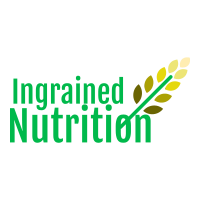Meeting nutrient and energy requirements when appetite is low can be difficult and often results in unintentional weight loss. Some reasons appetite may be reduced can be: nausea, medication changes, illness, chewing or swallowing difficulties, depression and anxiety and stress.
- Eat small amounts regularly
Grazing or eating smaller amounts every 2 hours is the best way to get the energy you need without having a large meal, listen to your body stop when full then try again in an hour or two. Keeping fluids separate from main meals can also prevent overfilling too quickly.
- Choose small volume energy dense foods
Foods such as nuts, fruit juice, cheese, avocado, cake, muffin, fruit juice, tin of tuna, honey, jam, peanut butter, yoghurt, custard, ice-cream, eggs, fruit toast, baked beans, milk, banana bread, nutrition supplements.
- Eat according to your taste preferences
Keep foods nearby that you enjoy, think about what you feel like eating- regardless of how healthy or unhealthy you think it may be.
- Fortify foods to add extra energy
Adding energy-dense condiments and add-on’s to meals can add extra energy without altering the taste of the meal e.g.
- Add skim milk powder to milk for use in tea, coffee, cereal, cooking
- Butter both slice of bread in a sandwich and add some avocado or mayo
- Add cream to mashed potato or porridge
- Add grated cheese to cooked vegetables and mashed potato
- Cook meats in olive oil
- Add dressing and cheese to salads
- Add cream or milk powder to soups for extra energy
- Sprinkle cheese on pasta and use cream based sauces
- Choose high energy toast toppings: peanut butter, avocado, cheese, baked beans
- If not feeling hungry, prioritise your meat, dessert and potato in the meal, save veggies and drinks until last. Vegetables are healthy and important but will not provide you with much energy.
- See your dietitian to discuss nutrition supplements
If your appetite is very poor and unintentional weight loss has occurred, you may need to see a dietitian who may prescribe an oral nutrition supplement to have in addition to you food to provide additional energy, protein and nutrients.
If your poor appetite is related to mental health issues, seeing your general practitioner or psychologist is the best option. For chewing and swallowing difficulties you may require assessment by a dentist and speech pathologist, who would determine whether a texture modified diet may be appropriate. Always discuss appetite changes with your doctor or dietitian to get on top of this as soon as possible!
By Caitlin Mannion, Dietitian




